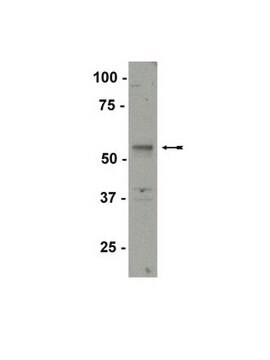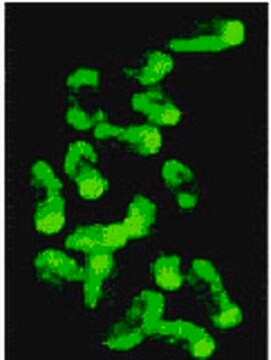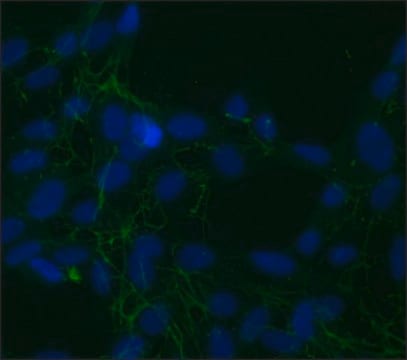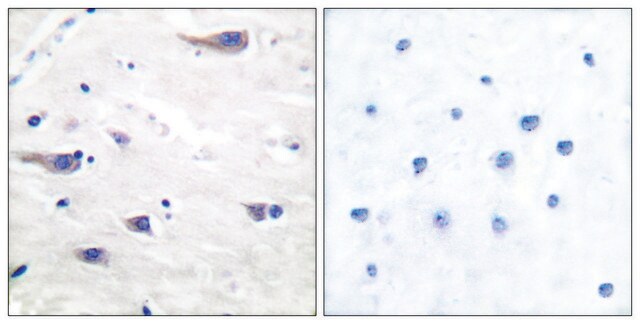MABC1177
Anti-Stat3b Antibody, clone 516 G10H9
clone 516 G10H9, from mouse
Synonym(s):
Signal transducer and activator of transcription 3b, Stat3b, Acute-phase response factor, spliced isoform 3, DNA-binding protein APRF, spliced isoform 3
About This Item
WB
western blot: suitable
Recommended Products
biological source
mouse
Quality Level
antibody form
purified antibody
antibody product type
primary antibodies
clone
516 G10H9, monoclonal
species reactivity
human
species reactivity (predicted by homology)
mouse (based on 100% sequence homology)
technique(s)
immunoprecipitation (IP): suitable
western blot: suitable
isotype
IgG1κ
NCBI accession no.
UniProt accession no.
target post-translational modification
unmodified
Gene Information
human ... STAT3(6774)
General description
Specificity
Immunogen
Application
Apoptosis & Cancer
Transcription Factors
Western Blotting Analysis: A representative lot specifically detected Stat3β (a.a. 127–722) GFP fusion protein, but not Stat3α (a.a. 127–770) or Stat3βΔCT7 (a.a. 127–717) GFP fusion that lacks Stat3β C-terminal end 7-a.a. (CT7) sequence (Bharadwaj, U., et al. (2014). Cancers (Basel). 6(4):2012-2034).
Immunoprecipitation Analysis: A representative lot specifically immunoprecipitated human Stat3β (a.a. 127–722) GFP fusion protein, but not Stat3α (a.a. 127–770) GFP fusion protein, exogenously expressed in MEFs lacking endogenous murine Stat3 (Bharadwaj, U., et al. (2014). Cancers (Basel). 6(4):2012-2034).
Quality
Western Blotting Analysis: 0.5 µg/mL of this antibody detected 0.5 µg of human Stat3β (a.a. 127–722) GFP fusion protein.
Target description
Physical form
Storage and Stability
Other Notes
Disclaimer
Not finding the right product?
Try our Product Selector Tool.
Storage Class Code
12 - Non Combustible Liquids
WGK
WGK 1
Flash Point(F)
Not applicable
Flash Point(C)
Not applicable
Certificates of Analysis (COA)
Search for Certificates of Analysis (COA) by entering the products Lot/Batch Number. Lot and Batch Numbers can be found on a product’s label following the words ‘Lot’ or ‘Batch’.
Already Own This Product?
Find documentation for the products that you have recently purchased in the Document Library.
Our team of scientists has experience in all areas of research including Life Science, Material Science, Chemical Synthesis, Chromatography, Analytical and many others.
Contact Technical Service








